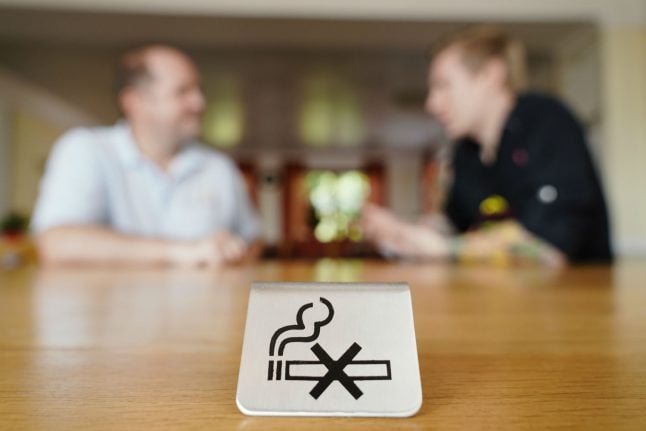It's perhaps a cliché that the French love their cigarettes, but as they say, there's no smoke without fire.
In fact new figures reveal that even despite the French government's controversial efforts to turn the population off cigarettes, the number of people smoking has gone up.
Since France introduced a ban on branded cigarettes in January 2017, more packets of cigarettes have been sold compared to last year when branding was allowed, according to the country's Customs Office (L'administration des Douanes).
In March alone the French bought four million packets of cigarettes, over four percent more than during the same period last year.

Throughout the first four months of 2017, the French shipped over 1 percent more tobacco products into the country than they did in the same period of 2016, officials say.
French health authorities have however dismissed the significance of the figures.
“The neutral packet is aimed at changing tobacco’s image and is principally aimed at younger people. Its impact on consumption will only become apparent in the medium or long term future,” said a statement from the Health Ministry's General Directorate of Health (DGS).
“Most current tobacco consumers are already dependent and the change in packaging alone will not encourage them to stop smoking, even if it can contribute to this,” it added.
And while tobacco consumption seems to be on the rise, an increasing proportion of the French intend to quit. According to the Office of Drugs and Addictions in France, sales in nicotine patches and chewing gum has increased by 29 percent since last year.
When neutral, brand-less packaging was introduced at the start of this year it cost the French state around €100 million to reimburse tobacco businesses for the loss of 15 million branded cigarettes that they were no longer able to sell.
Smoking is a factor in around 78,000 deaths in France each year – making it the leading cause of premature death in the country. Around a quarter of adults and a third of teenagers indulge in the habit, according to World Health Organization figures.
by Blyth Brentnall
The French and smoking: Is France really Europe's chimney?





 Please whitelist us to continue reading.
Please whitelist us to continue reading.